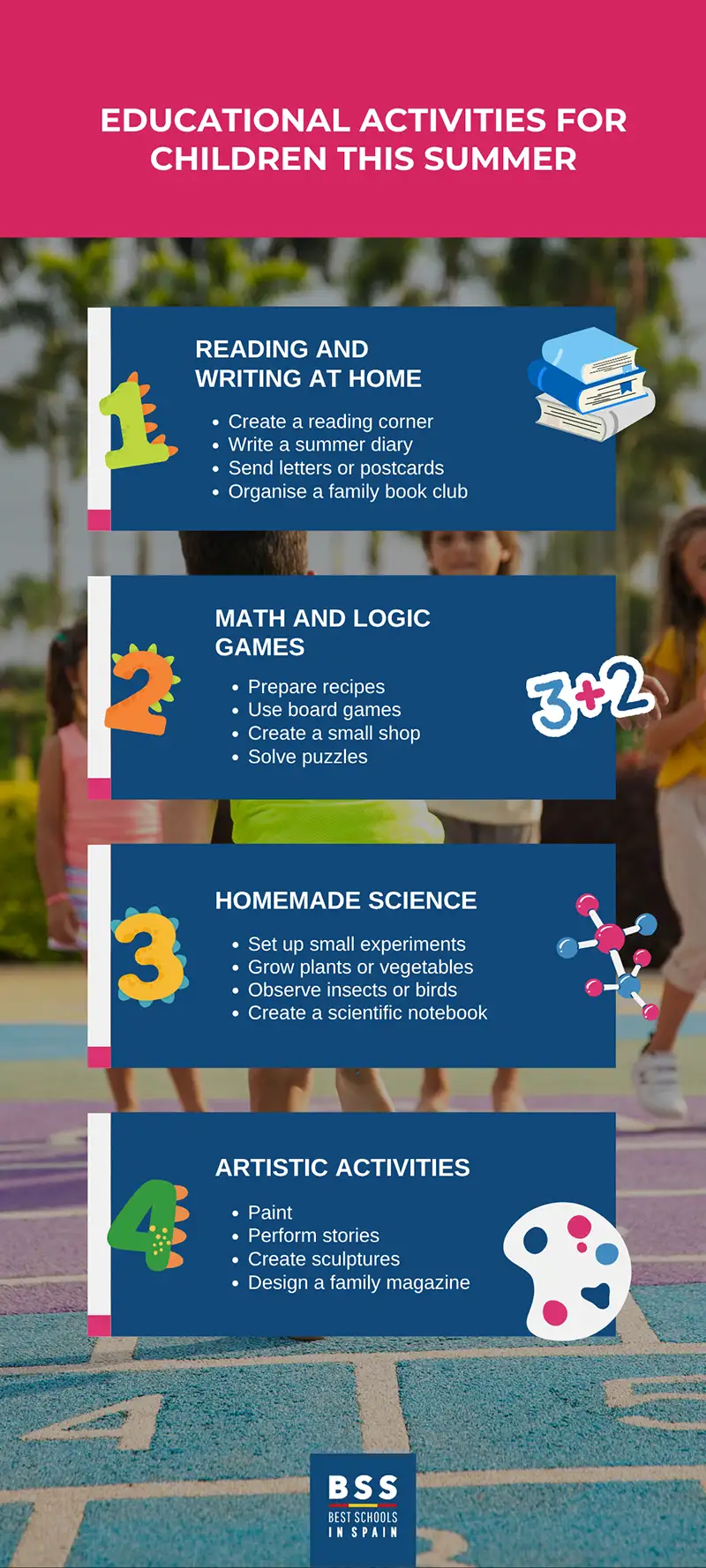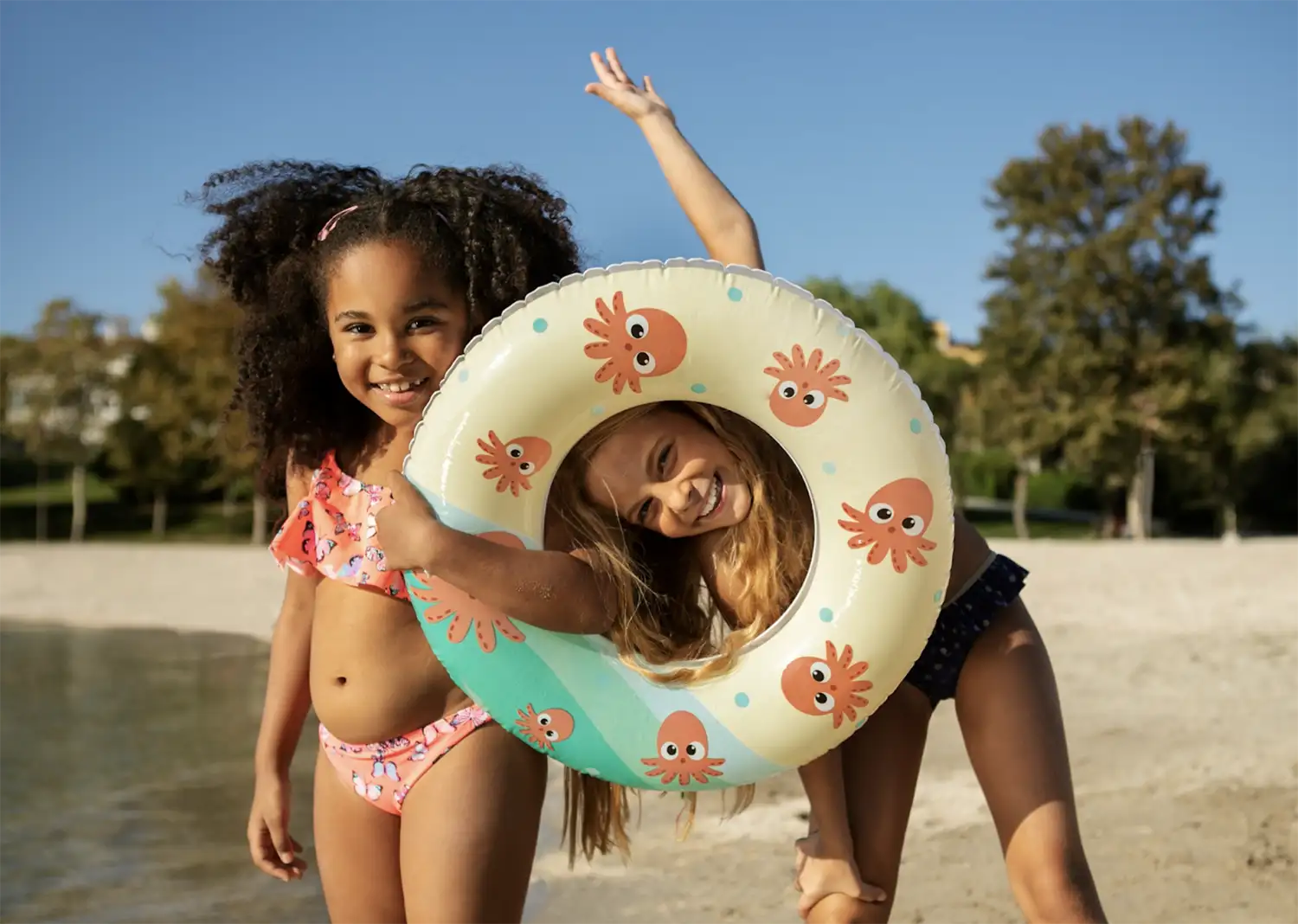Summer learning is a valuable opportunity to continue fostering children’s development. The summer holidays are an eagerly anticipated time for both children and families. The pace slows down, time invites leisure, and obligations are reduced. However, this does not mean we should stop learning. On the contrary, summer offers the chance to keep learning through play, curiosity, and creativity.
At the schools part of Best Schools in Spain (BSS), el aprendizaje no se limita al aula ni al calendario escolar. Las vacaciones son una etapa ideal para reforzar lo aprendido, descubrir nuevas habilidades y fomentar la autonomía infantil a través de actividades educativas bien diseñadas.
Why maintain summer learning?
The so-called “summer slide” can lead to a loss of knowledge acquired during the school year, especially in reading and mathematics. But beyond academic content, it is important to keep the mind active and maintain thinking habits during the holidays.
Benefits of maintaining active learning in summer:
Strengthens the child’s confidence and self-esteem.
Helps make the transition back to school smoother and less stressful.
Promotes exploration of personal interests.
Strengthens the parent-child bond through shared activities.

Educational activities for children: how to learn without it feeling like class
1. Reading and writing at home
Create a cosy reading nook with books chosen by the child.
Write a summer diary with drawings and anecdotes.
Send letters or postcards to family members to practice informal writing.
Organise a family book club with mini debates about the books.
BSS schools often reinforce reading as a daily habit, even during summer, with voluntary reading projects and plans. Discover the best books for children by age in this article.
2. Math and logic games in daily life
Prepare recipes as a family to work on measurements and proportions.
Use board games like dominoes, chess, or Uno.
Create a small shop at home and practice addition and subtraction with play money.
Solve age-appropriate puzzles or logic challenges.
These activities help maintain logical reasoning and mental calculation in a fun, pressure-free way.
3. Homemade science and creative experimentation
Set up small experiments with household materials: a vinegar and baking soda volcano, a sundial, or a homemade water filter.
Grow plants or vegetables in recycled jars and track the process.
Observe insects or birds from the environment with a magnifying glass or binoculars.
Create a scientific notebook or logbook of observations.
The STEAM approach, widely present in BSS schools, can continue at home through simple and stimulating projects.
4. Artistic and expressive activities
Paint in the style of well-known artists and set up a family exhibition.
Perform stories with puppets or improvised costumes.
Create sculptures with clay, plasticine, or natural elements.
Design a family magazine with cut-outs, news, and invented stories.
Art education is essential for emotional and cognitive development and promotes personal expression from an early age.
Outdoor learning: beyond four walls
In addition to activities at home, summer offers a privileged setting for outdoor learning. Nature, movement, and free play stimulate observation, autonomy, and critical thinking.
Ideas for integrating learning outdoors:
Bike or walking routes with a field notebook to identify plant or animal species.
Visits to outdoor museums, interpretation centres, or archaeological sites.
Explore a nearby urban park or forest and create an illustrated map.
Observe stars and learn to identify constellations.
Play at building shelters with branches, organise treasure hunts, or do orienteering with a compass.
BSS schools often incorporate nature education into their pedagogical approach, and many families reinforce it in summer with these types of plans.
Free time and learning: finding balance
It’s not about structuring the entire summer as if it were an extra term. Ideally, set a flexible routine with spaces for rest, free play, and educational activities without one dominating the others.
Reserve 30 to 60 minutes daily for structured activities.
Allow room for boredom and spontaneous creativity.
Avoid excessive screen time as a permanent resource.
Alternate home activities with outdoor experiences.
Summer with educational intention
Summer doesn’t have to be a blank pause. It can become a fertile time for growth if approached with intention and balance. With well-chosen activities, tailored to the rhythm and age of each child, it is possible to maintain learning in summer in a natural, fun, and meaningful way.
At Best Schools in Spain, we encourage families to make the most of these months as an extension of vital learning. Because education doesn’t stop in June, and BSS schools view summer as an opportunity to continue cultivating each student’s potential, inside and outside the classroom.
Would you like your child to learn like this all year? Learn more about our schools at www.bestschoolsinspain.com



